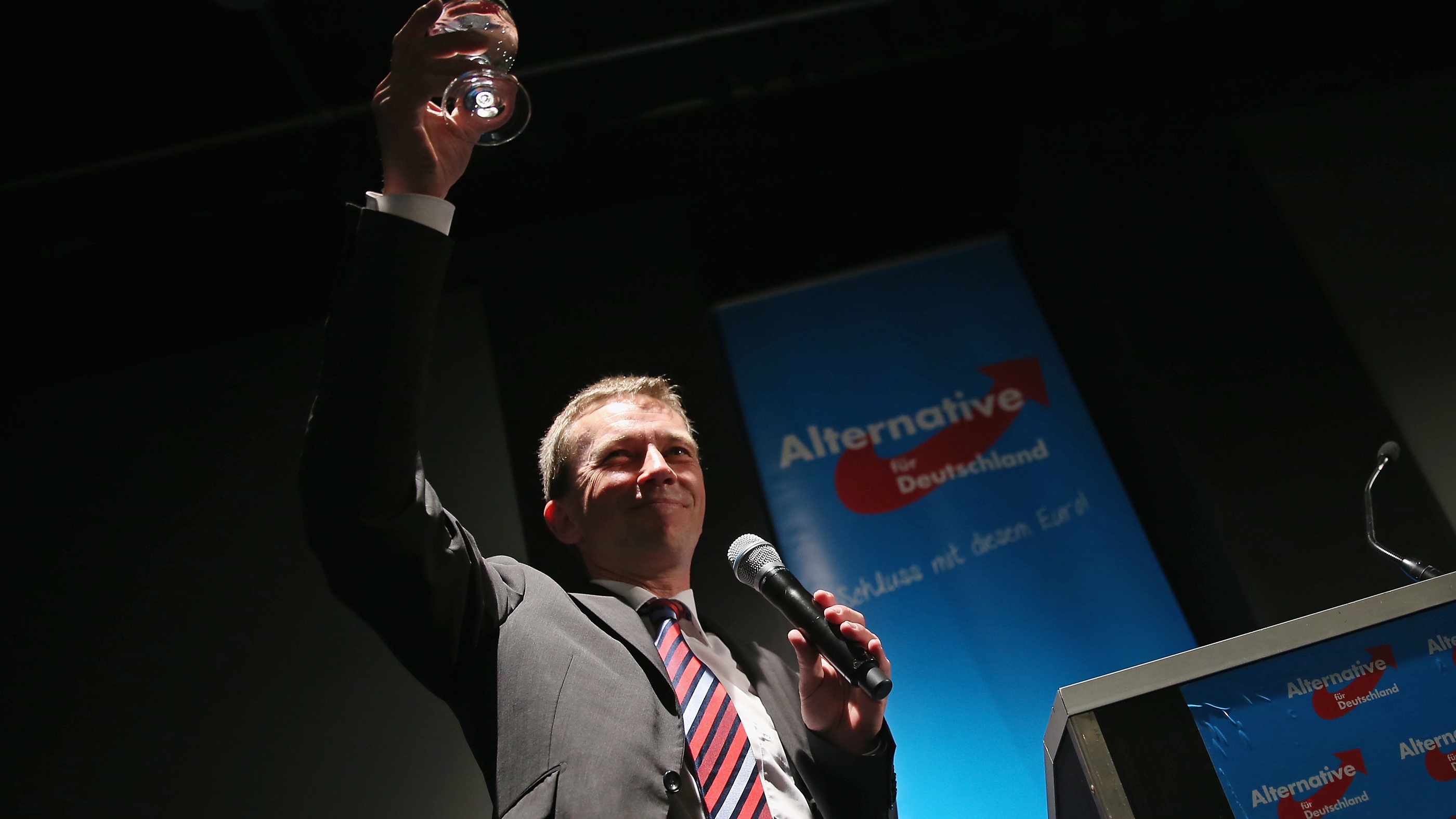Academics claim political correctness has gone mad
New survey reveals fears for freedom of expression at universities

A free daily email with the biggest news stories of the day – and the best features from TheWeek.com
You are now subscribed
Your newsletter sign-up was successful
A climate of political correctness in universities and colleges is stifling open debate, according to lecturers in Germany.
A new survey of more than 1,100 professors and academics found that four in five believe members of far-right groups such as the Alternative for Germany (AfD) party should be able to air their views “without fear of reprisals”, according to The Times. And 72% think they should be allowed to refuse to use gender-neutral language.
Yet more than a third of academics say they have felt compelled to limit their teaching because of the strictures of political correctness.
The Week
Escape your echo chamber. Get the facts behind the news, plus analysis from multiple perspectives.

Sign up for The Week's Free Newsletters
From our morning news briefing to a weekly Good News Newsletter, get the best of The Week delivered directly to your inbox.
From our morning news briefing to a weekly Good News Newsletter, get the best of The Week delivered directly to your inbox.
The research - commissioned by centre-right think-tank the Konrad Adenauer Foundation and the German University Association - follows “a spate of claims that left-wing students have attempted to silence lecturers with unwelcome views”, the newspaper reports.
In October, economics professor Bernd Lucke, who co-founded the AfD but later quit the party, was placed under police protection after students disrupted his lectures at Hamburg University, as Deutsche Welle reported at the time.
And Susanne Schroter, an expert on Islam at Frankfurt’s Goethe University, faced calls to resign last April after holding a debate on whether the headscarf was a symbol of “dignity or oppression”.
The new study found that while the majority of lecturers think they should be allowed to invite a right-wing populist to a panel discussion, 74% believe they would encounter considerable resistance from students or the university management, reports Berlin-based newspaper Die Welt.
A free daily email with the biggest news stories of the day – and the best features from TheWeek.com
–––––––––––––––––––––––––––––––For a round-up of the most important stories from around the world - and a concise, refreshing and balanced take on the week’s news agenda - try The Week magazine. Start your trial subscription today –––––––––––––––––––––––––––––––
Despite such opposition, more than two out of five academics also believe climate change deniers should be allowed to speak at universities, and one in four say it should be permissible to oppose Islam.
The freedom of speech fears revealed in the survey have been seized on by the AfD as evidence of what the right-wing party has called a “dictatorship of opinion” in public life.
In 2015, “gutmensch”, meaning an overly politically correct person, was named Germany’s word of the year.
Often translated into English as “do-gooder”, the word was selected because it defames “tolerance and helpfulness as naive, dumb and worldly innocent, as having a helper syndrome or as moral imperialism”, linguist Nina Janich told German media.
-
 What to know before filing your own taxes for the first time
What to know before filing your own taxes for the first timethe explainer Tackle this financial milestone with confidence
-
 The biggest box office flops of the 21st century
The biggest box office flops of the 21st centuryin depth Unnecessary remakes and turgid, expensive CGI-fests highlight this list of these most notorious box-office losers
-
 The 10 most infamous abductions in modern history
The 10 most infamous abductions in modern historyin depth The taking of Savannah Guthrie’s mother, Nancy, is the latest in a long string of high-profile kidnappings
-
 Epstein files topple law CEO, roil UK government
Epstein files topple law CEO, roil UK governmentSpeed Read Peter Mandelson, Britain’s former ambassador to the US, is caught up in the scandal
-
 Iran and US prepare to meet after skirmishes
Iran and US prepare to meet after skirmishesSpeed Read The incident comes amid heightened tensions in the Middle East
-
 Israel retrieves final hostage’s body from Gaza
Israel retrieves final hostage’s body from GazaSpeed Read The 24-year-old police officer was killed during the initial Hamas attack
-
 China’s Xi targets top general in growing purge
China’s Xi targets top general in growing purgeSpeed Read Zhang Youxia is being investigated over ‘grave violations’ of the law
-
 Panama and Canada are negotiating over a crucial copper mine
Panama and Canada are negotiating over a crucial copper mineIn the Spotlight Panama is set to make a final decision on the mine this summer
-
 Why Greenland’s natural resources are nearly impossible to mine
Why Greenland’s natural resources are nearly impossible to mineThe Explainer The country’s natural landscape makes the task extremely difficult
-
 Iran cuts internet as protests escalate
Iran cuts internet as protests escalateSpeed Reada Government buildings across the country have been set on fire
-
 US nabs ‘shadow’ tanker claimed by Russia
US nabs ‘shadow’ tanker claimed by RussiaSpeed Read The ship was one of two vessels seized by the US military